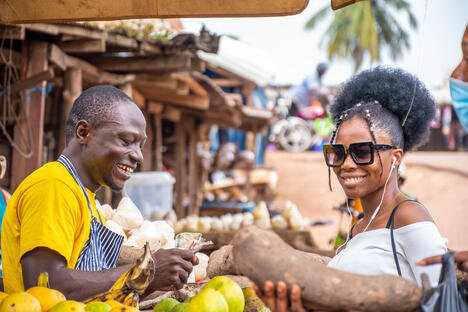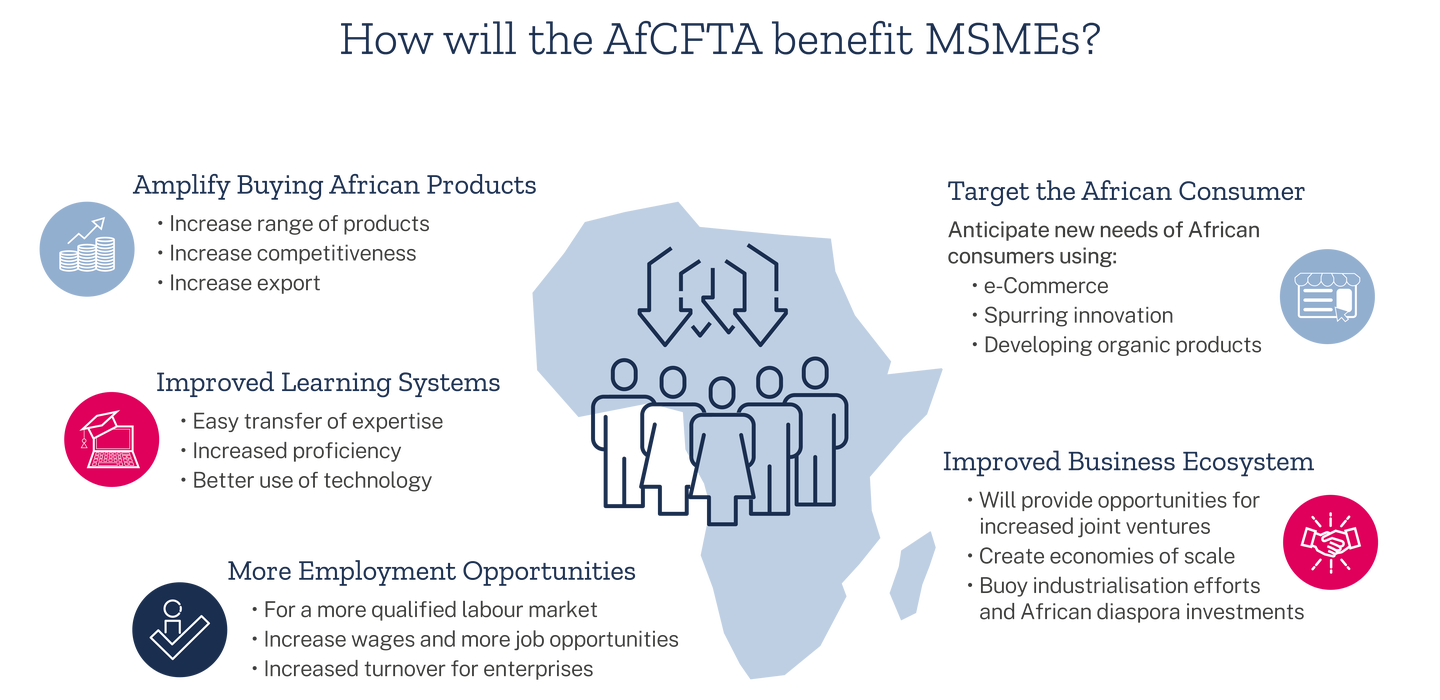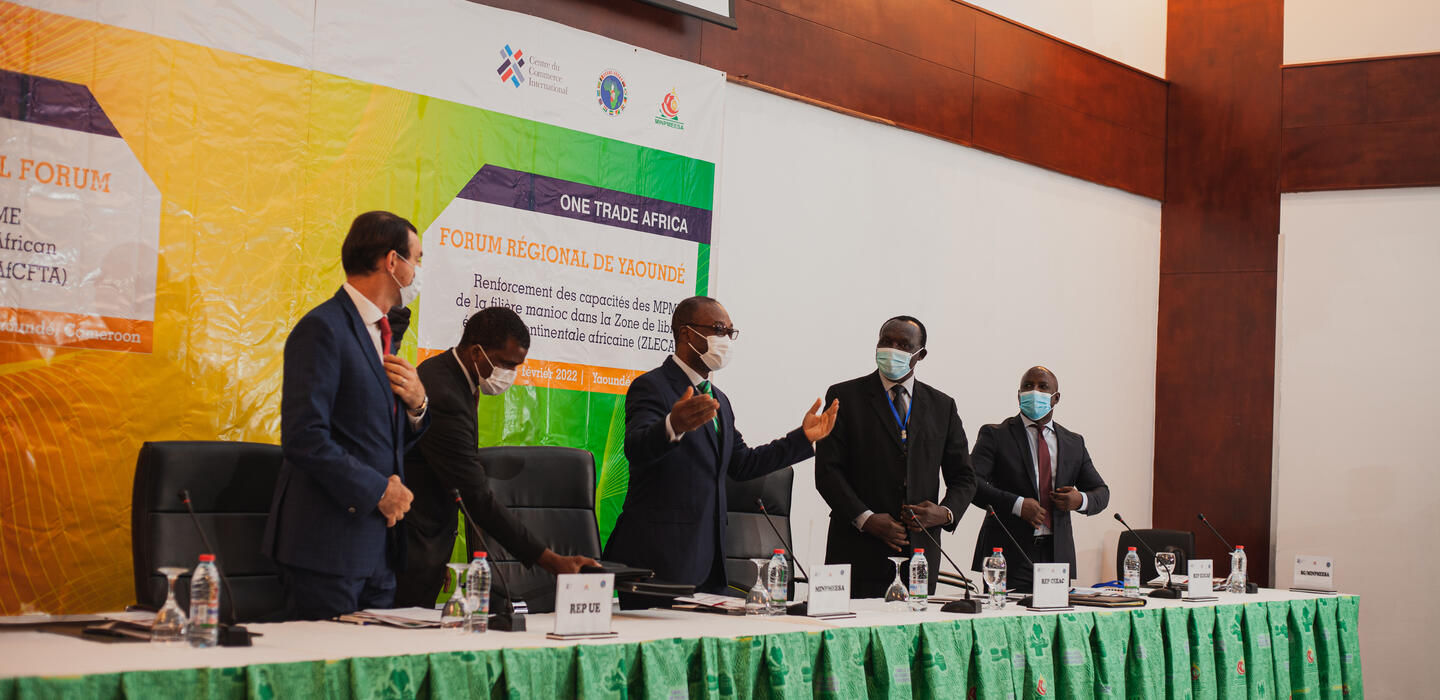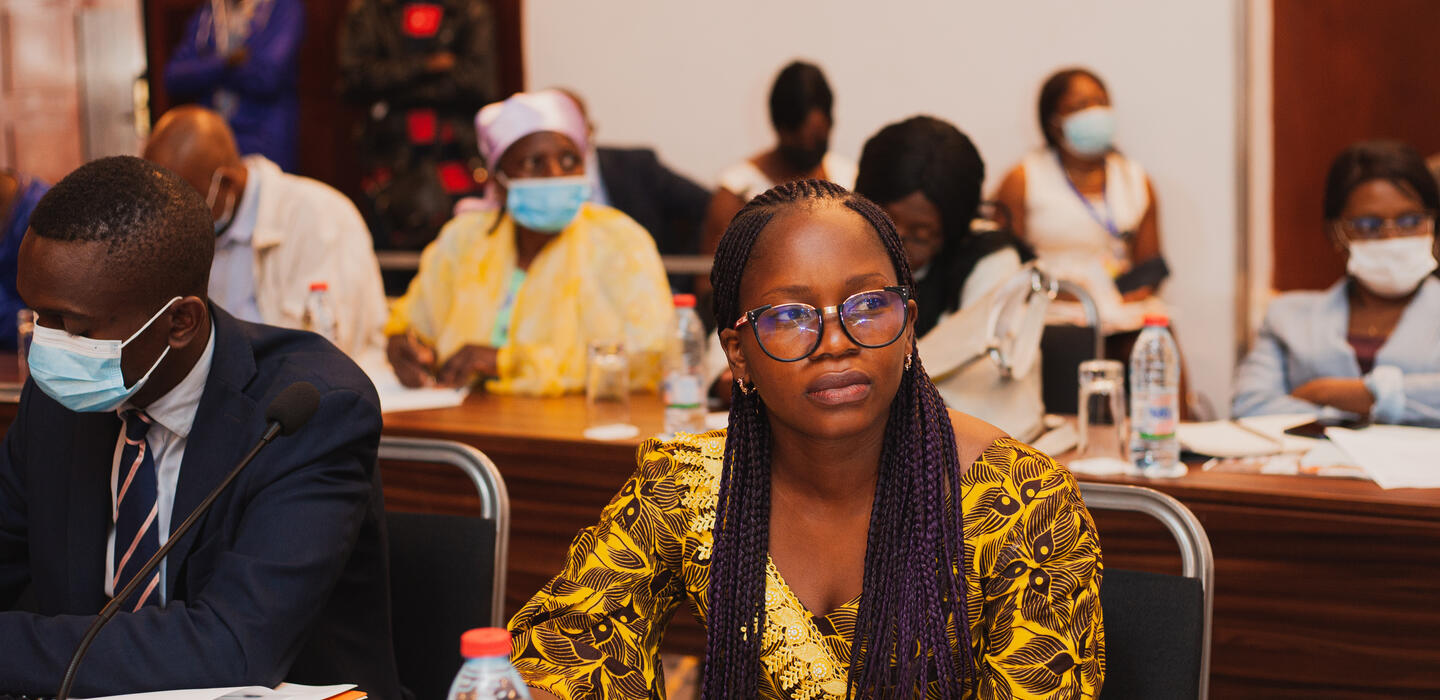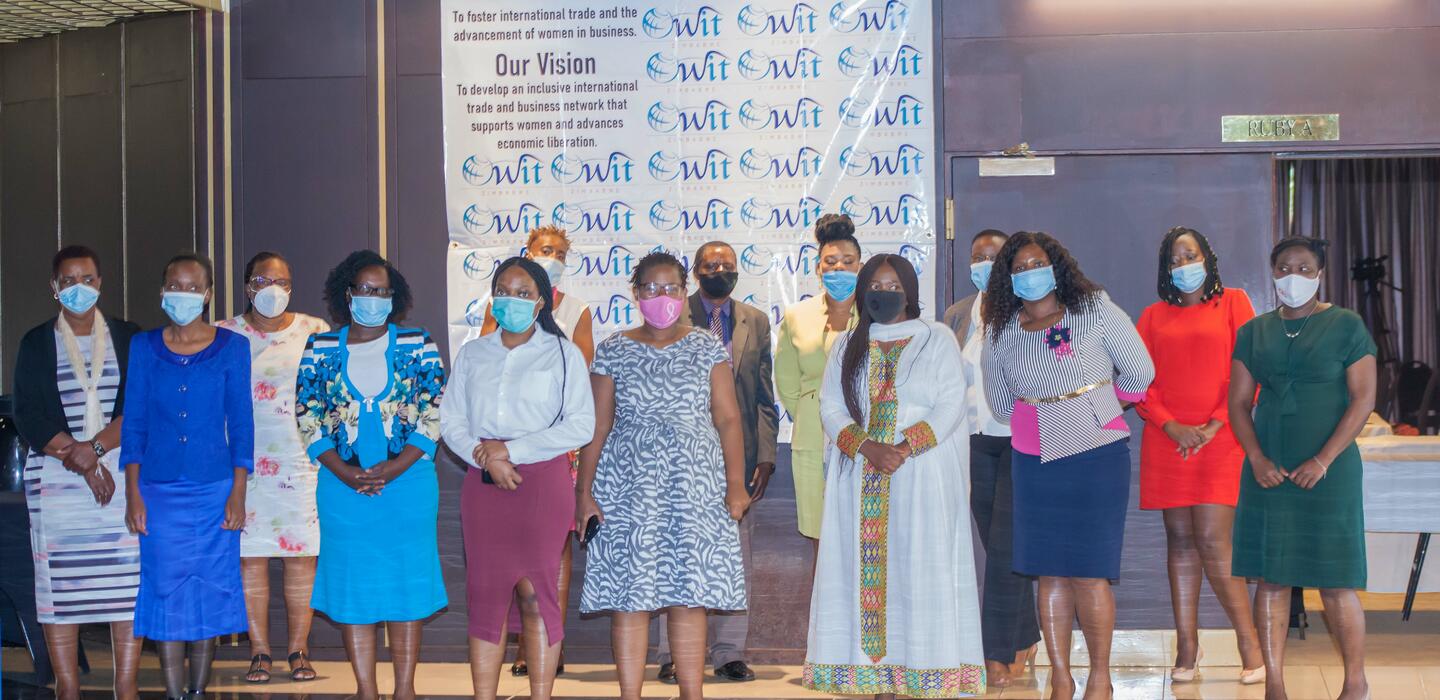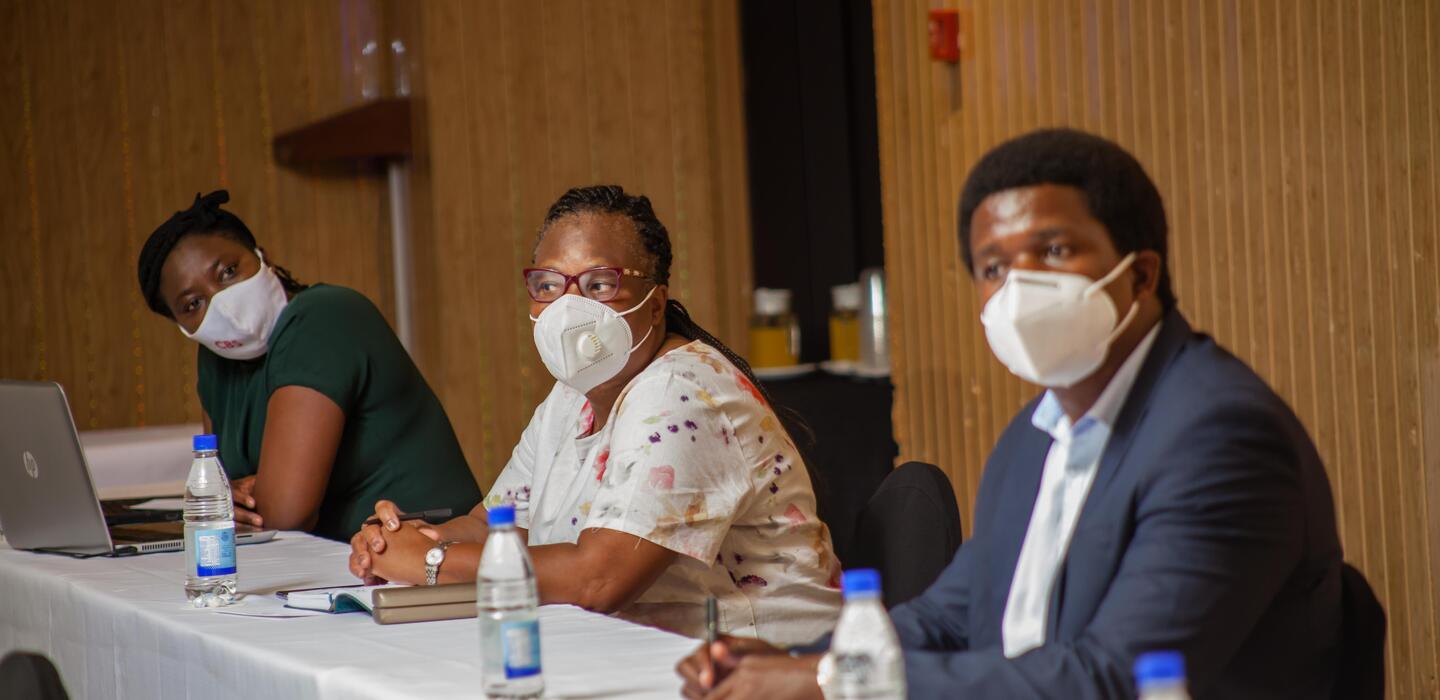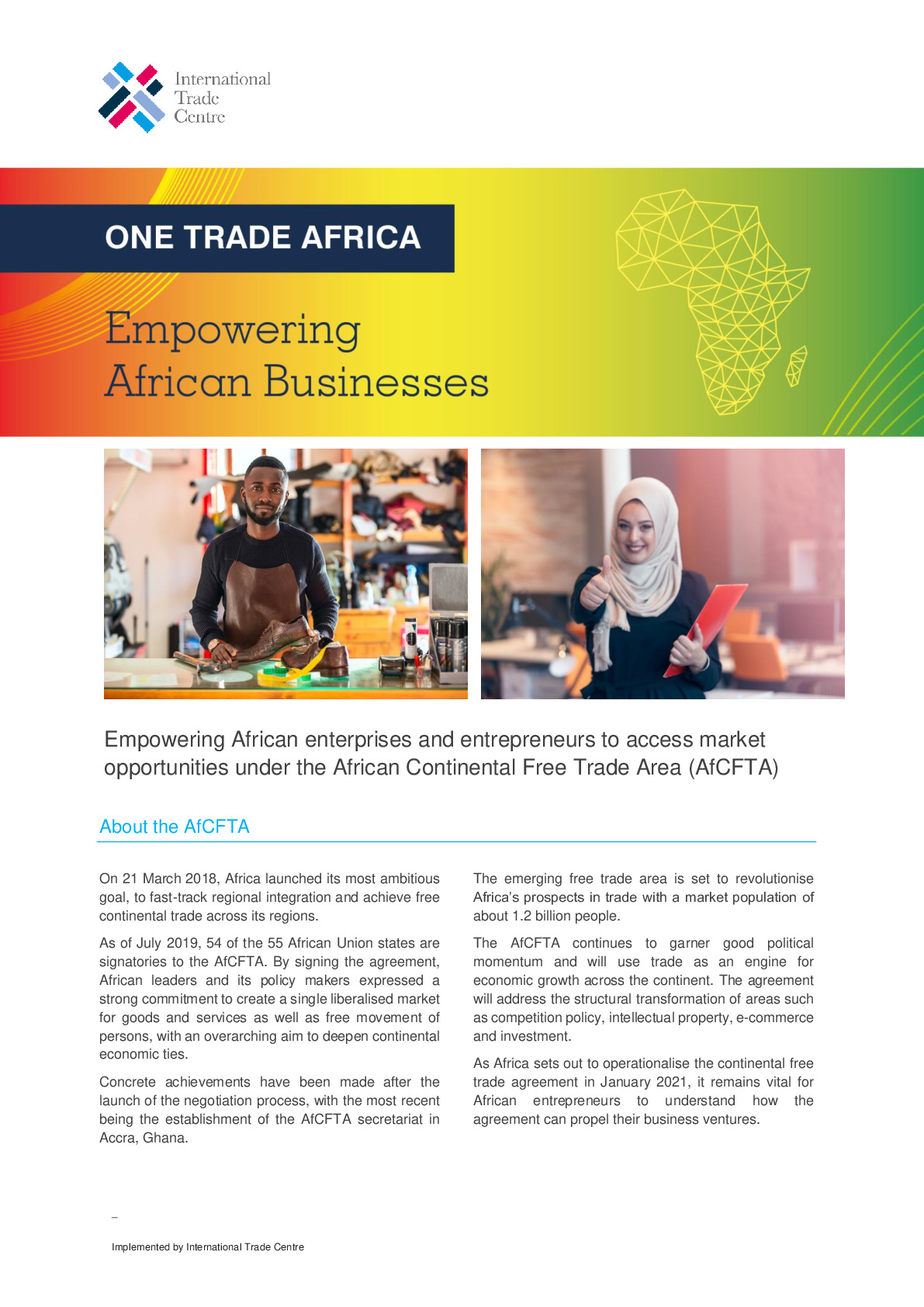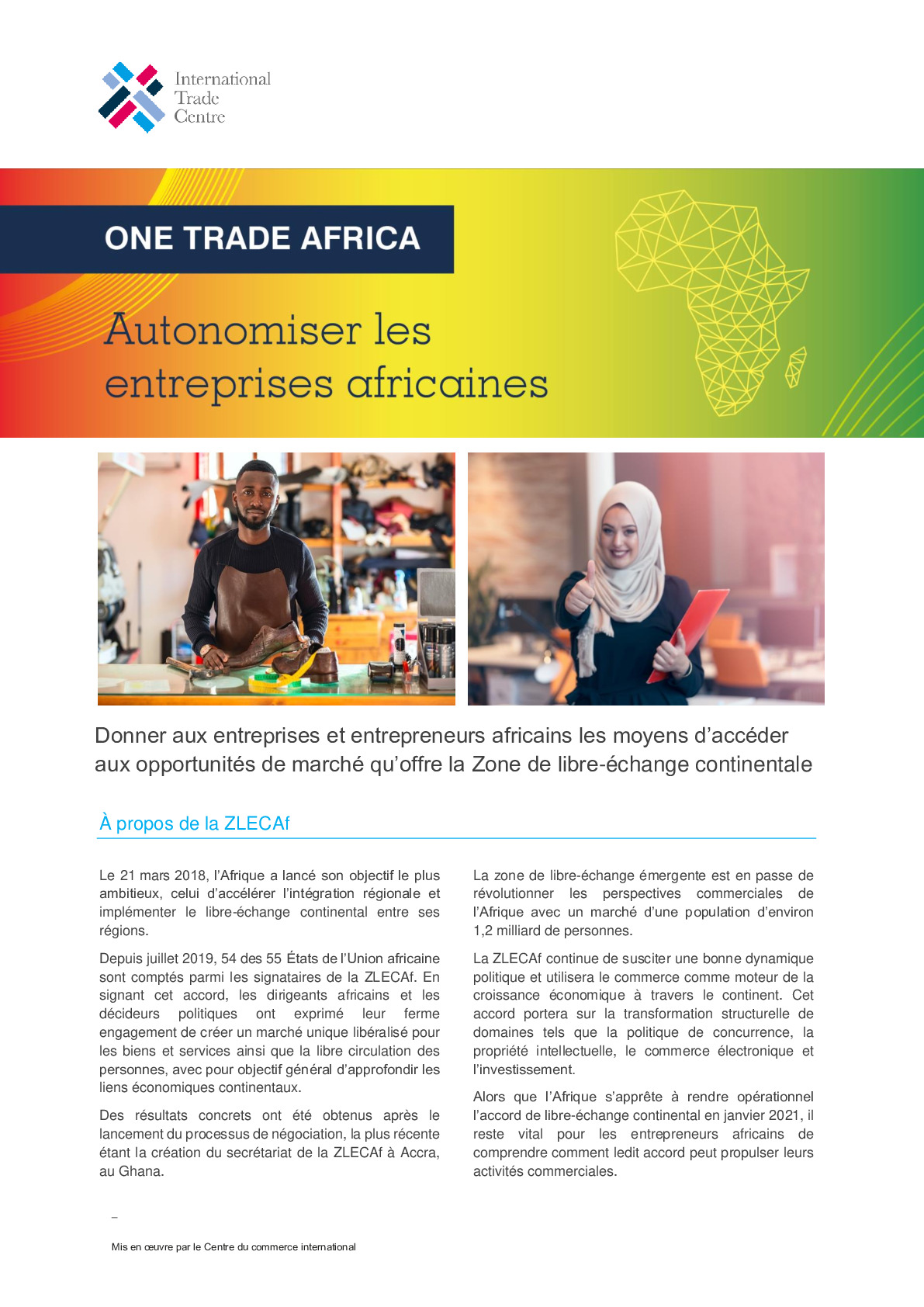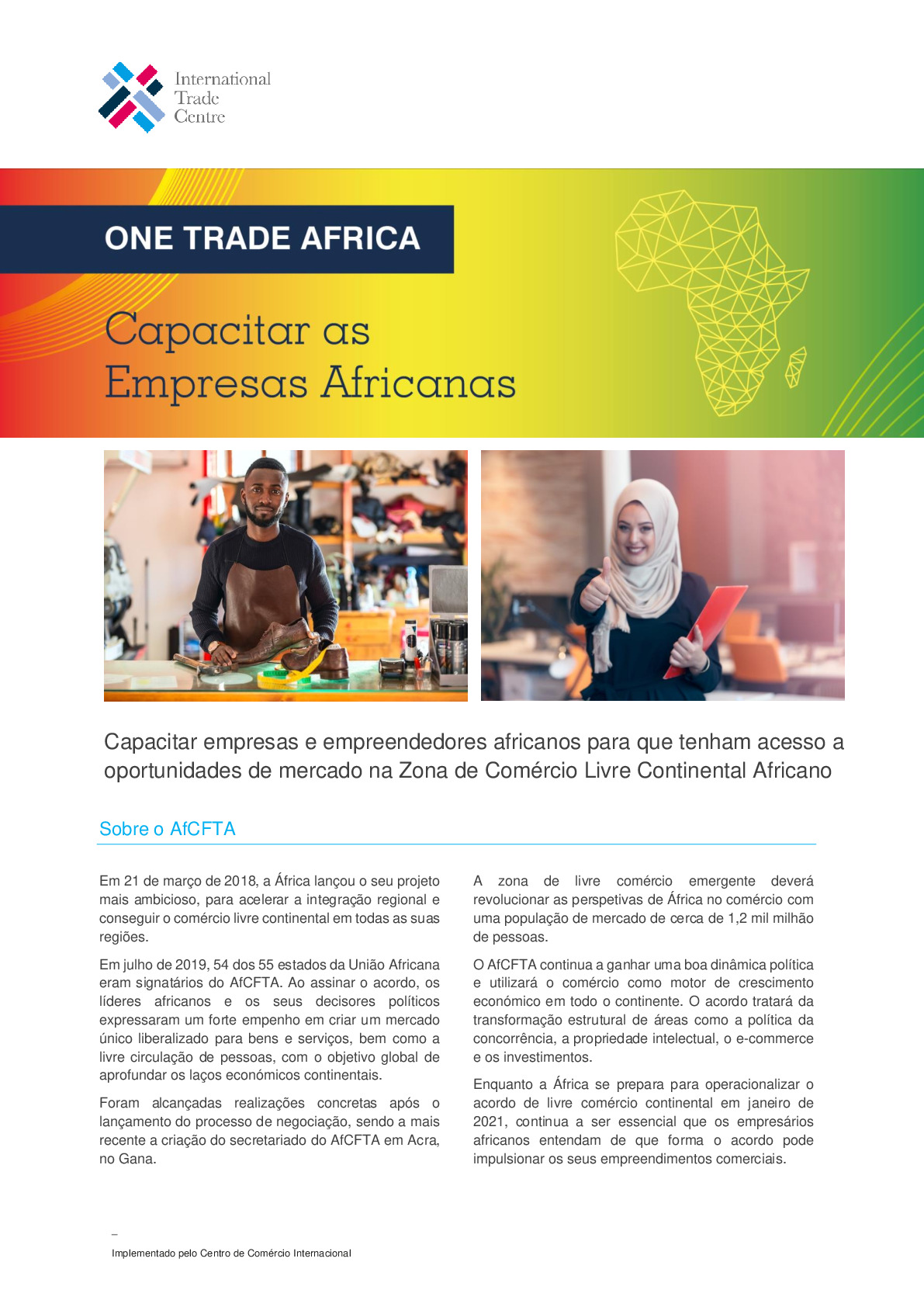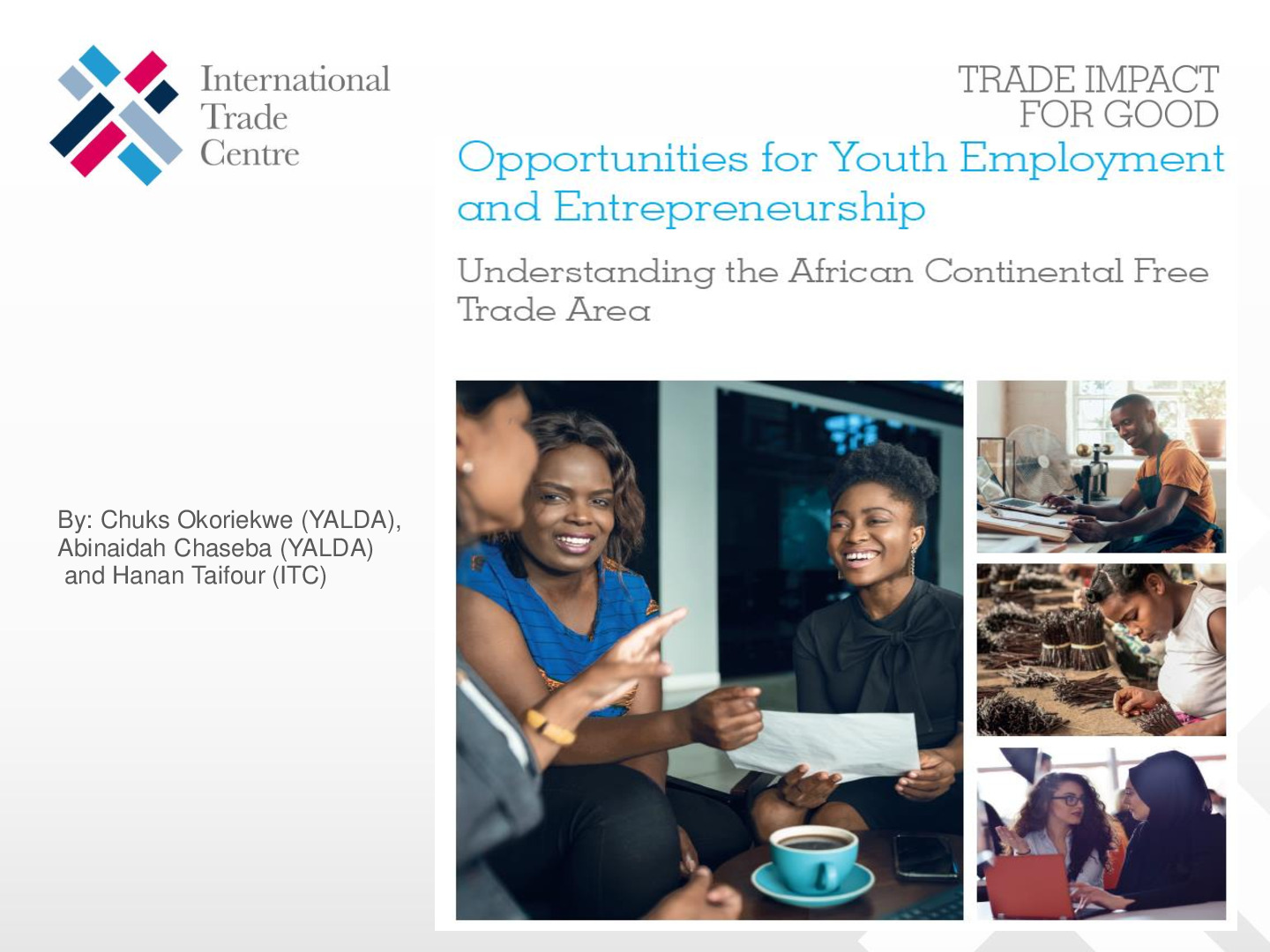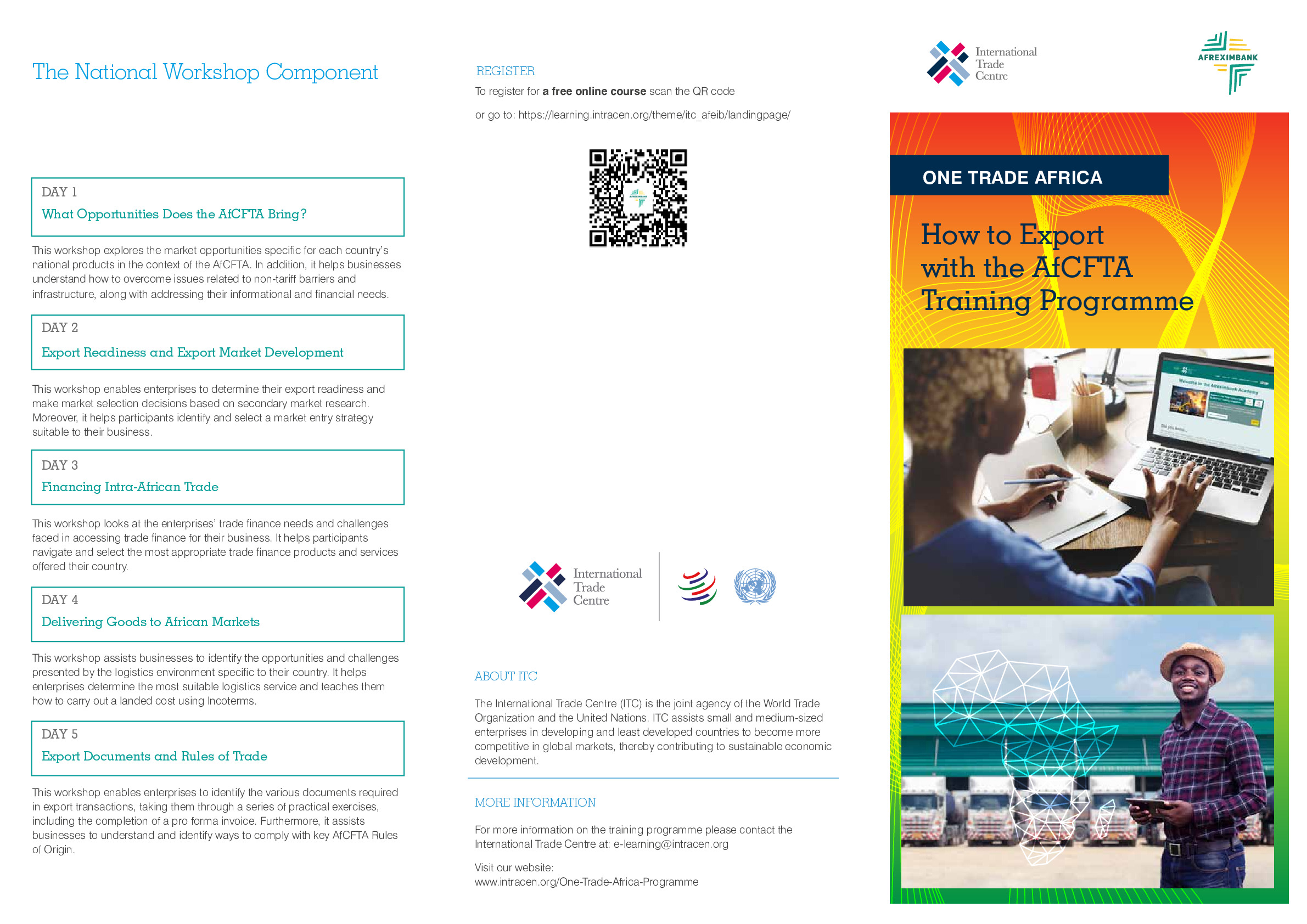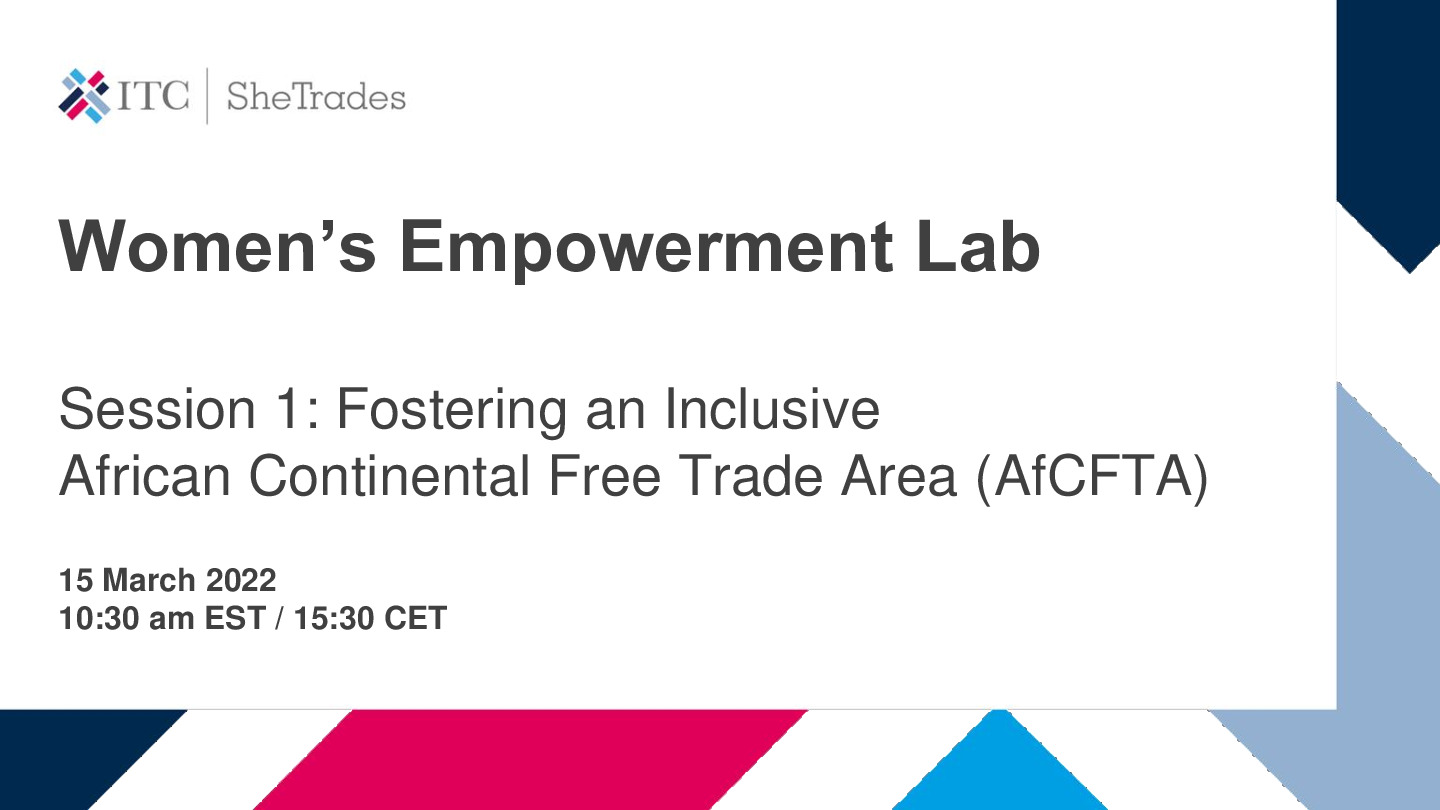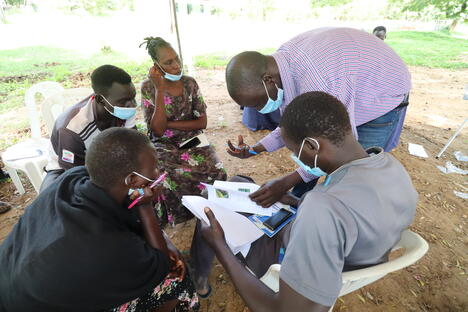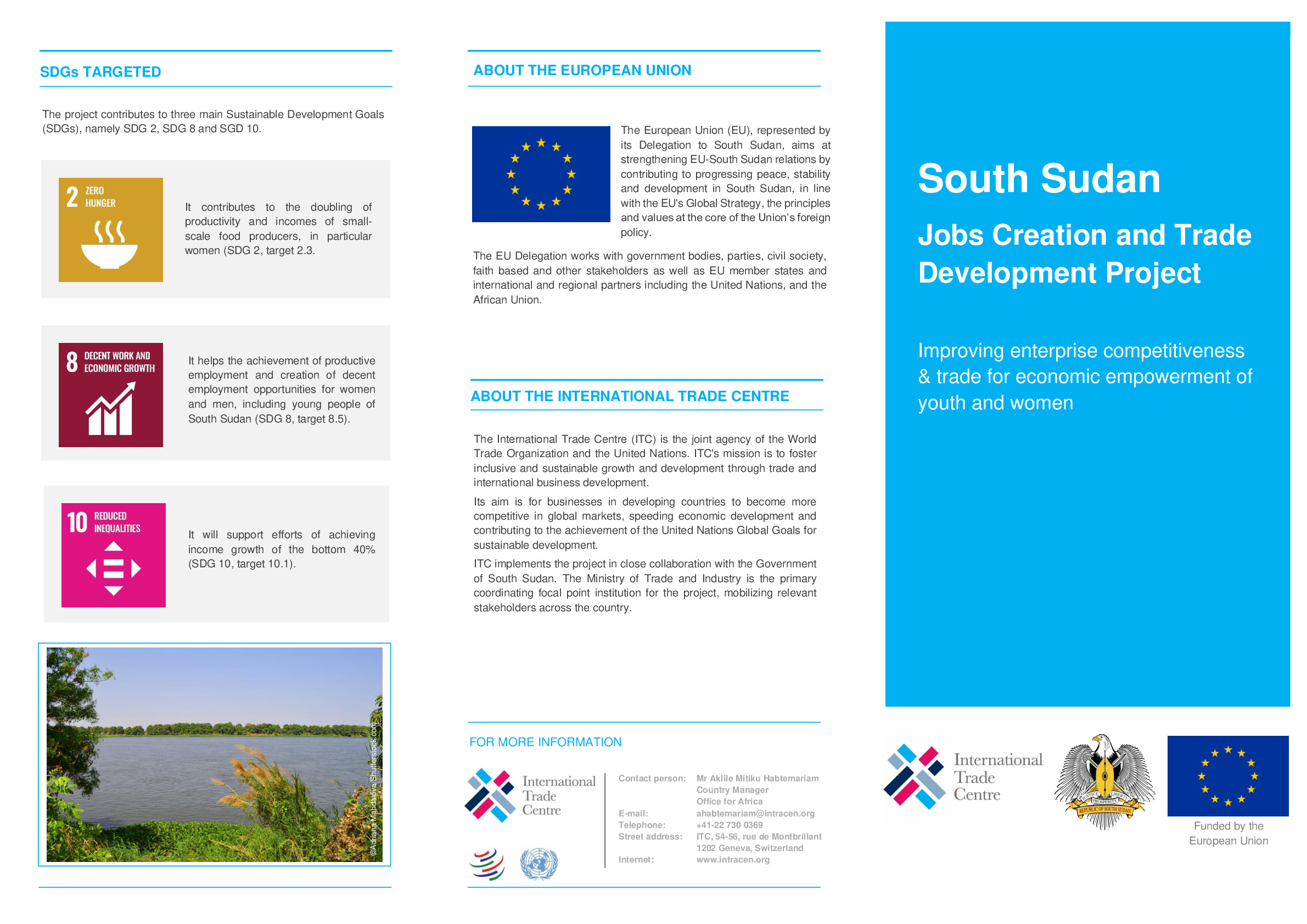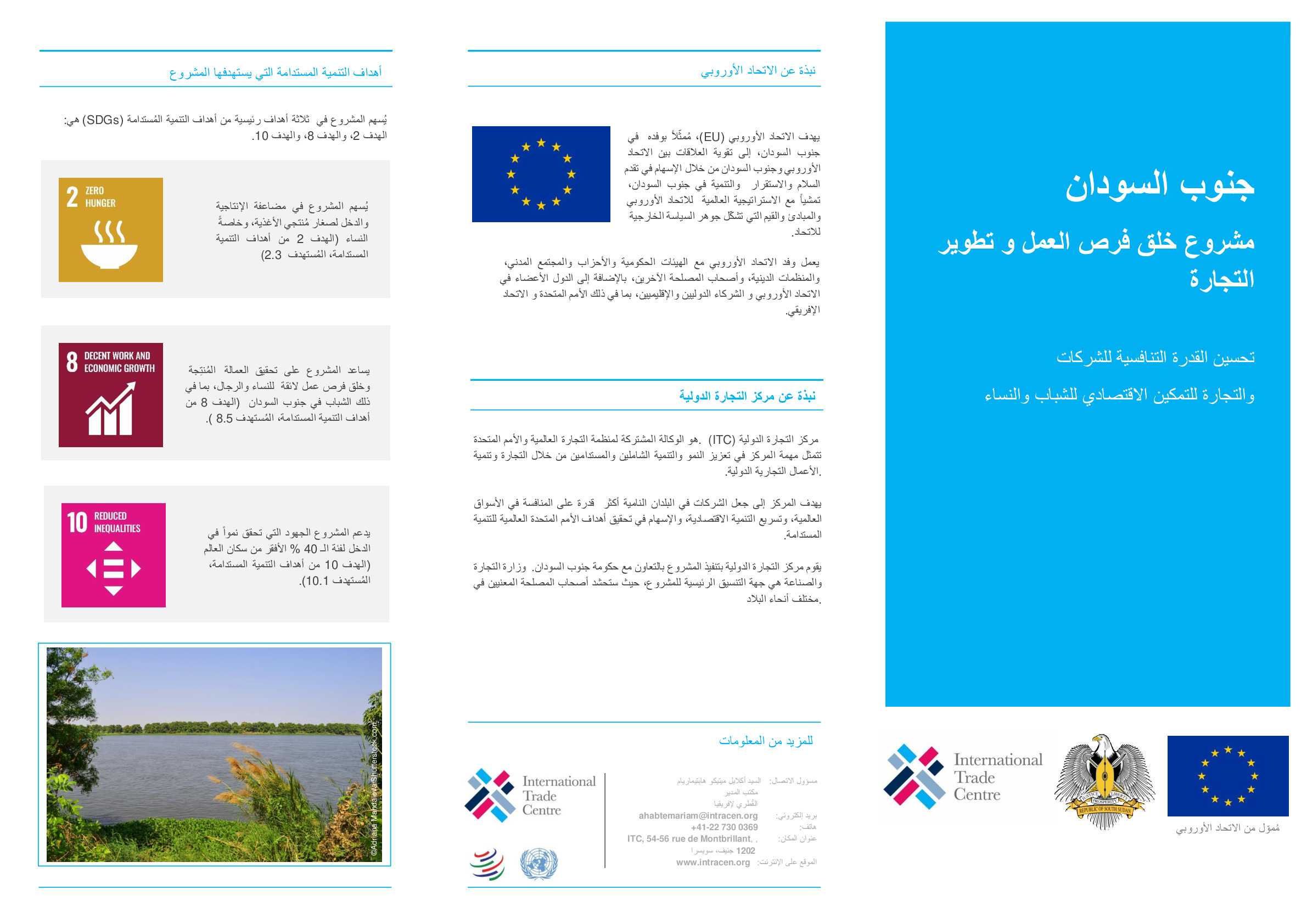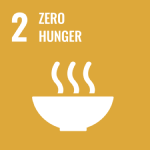Sub-Saharan Africa
Africa: Continental Component - Africa Trade Competitiveness and Market Access (ATCMA)
Trade to create more than two million new jobs in Africa
The African Continental Free Trade Area (AfCFTA) represents a monumental step towards realizing Africa’s full economic potential.
Africa officially started trading under the AfCFTA Agreement on 1 January 2021, a pact which is estimated to cover 1.3 billion people across Africa, with a combined gross domestic product of $3.4 trillion.
It is a unique opportunity for African countries to compete in the global economy, reduce poverty and increase inclusion.
The One Trade Africa programme approach
-
Develop continental and regional value chains and strengthen key sectors through capacity building activities
-
Improve food quality and sanitary standards through tailored trainings
-
Explore and shore up e-commerce and green technology opportunities
-
Advocate for improved cross-border trade mechanisms and increased inclusion of women and youth
-
Strengthen agri-business and service sectors by introducing sustainable approaches
ITC has also developed the EU-funded Africa Trade Observatory to collect, analyse and disseminate trade intelligence to policy makers and businesses, and monitor intra-African trade flows.
The Casablanca workshop, 25-26 May 2022, aims to increase the participation of moroccan small and medium-sized exporters in the AfCFTA through better knowledge of African markets and their requirements, and easier access to existing trade support mechanisms.
The Yaoundé Forum: Building the capacity of MSMEs in the cassava sector in the African Continental Free Trade Area was jointly organized in January 2022 by the ITC, the Economic Community of Central African States and the Ministry of Small and Medium Enterprises, Crafts and Social Economy improve the production and the export knowledge of small businesses operating in the cassava sector in Central Africa, under the AfCFTA.
- Présentations - Day 1 / Day 2
- Speakers biographies (FR)
The Libreville Forum: Increasing exports in the African Continental Free Trade Area was jointly organized in October 2021 by the Ministry of Commerce, Small and Medium Enterprises and Industry, the Directorate General of Commerce and ITC under the theme increasing exports in the AfCFTA.
The Rabat Forum: Operationalising the AfCFTA in North Africa was jointly organized in March 2021 by ITC and the Secretariat of the Arab Maghreb Union in Rabat to boost economic integration of North Africa within the region and with the rest of the continent in the context of the AfCFTA.
- Declaration (EN) - (FR)
- Presentations
- Speakers biographies
The Harare Forum: Demystifying the AfCFTA for Southern African Women-led MSMEs was organized in March 2021 in collaboration with the Organisation of Women in International Trade in Zimbabwe and ITC to promote ownership of the agreement among the region’s participants as well as engage women and youth-owned small firms in seeking out the potential business gains the AfCFTA can offer.
The Nairobi Forum: Trade Beyond Covid-19 - Unpacking the AfCFTA for East African MSMEs was organized in November 2020 by ITC, in collaboration with the Ministry of Industry, Trade and Cooperatives and MSMEs of Kenya, the East African Community, KEPSA, and EABC.
The Dakar Forum: Increasing exports in the African Continental Free Trade Area was organized in October 2020 by ITC, in collaboration with the Ministry of Commerce and SMEs of Senegal, to enable the private sector to take full advantage of the economic opportunities offered by the single African market.
Forum videos
<p>The Africa Trade Competitiveness and Market Access (ATCMA) Continental Component is designed to improve livelihoods, employment and economic growth in Africa through increased sustainable intra-African and EU-Africa trade. It complements and coordinates the existing and planned actions at the Sub-regional Component levels to ensure an overall coherent umbrella ATCMA programme. </p><p>The ATCMA aims to improve the <strong>trade competitiveness</strong> of African SMEs and their <strong>market access</strong> to the African region and the European Union (EU). The Continental Component is structured around support to create a robust continental quality infrastructure and enable intra-African trade as well as facilitation for green transition at the continental level. Targeted technical interventions are designed to strengthen a continental regulatory framework that supports trade competitiveness through value addition in priority value chains (VCs) and “Made in Africa” products.</p><p>The programme adopts a holistic value chain approach, and therefore includes interventions that support the design, production, financing, processing, commercialization, labelling, marketing and distribution of African products by SMEs.</p>
South Sudan: Jobs creation and trade development
Jobs creation for women and youth
The International Trade Centre’s South Sudan Jobs Creation and Trade Development Project was created to help create jobs for the people of South Sudan by boosting micro, small and medium-sized enterprises (MSMEs) working in the fruit and vegetables sectors.
ITC is lending its international expertise and providing training opportunities to help these businesses improve their production, processing and handling practices, build up their capacities and skills and strengthen producer cooperatives.
The project is also responding to the need for jobs for women and youth, by building up local entrepreneurship and business management capacities, as well as implementing innovative schemes to help youth entrepreneurs and youth-owned businesses access finance.
Sustainable Development Goals
<p style="text-align: justify;">This project emanates from the technical assistance request of the Government of South Sudan to the International Trade Centre. It has specific objectives of improving the competitiveness of micro, small and medium-sized enterprises (MSMEs) and increasing employment opportunities for the South Sudanese labour force, with a focus on youth and women. In particular, it aims to provide an integrated and holistic assistance for the development of MSMEs in the fruits and vegetables value chains to create quick-win economic and employment opportunities for South Sudanese population targeted under the project. It will address the main challenges of the fruits and vegetables subsector along the value chains by improving production, processing and handling practices; building capacities of MSMEs to comply with mandatory market requirements and standards for enhanced access to markets; enhancing human skills as well as strengthening producer cooperatives. It will also address the employment problems of youth and women by building entrepreneurship and business management capacities and implementing innovative schemes to facilitate access to finance for youth entrepreneurs and youth-owned businesses.</p><p style="text-align: justify;">The project has an overall objective of improving the livelihoods of targeted South Sudanese populations through the creation of jobs and income.</p>




